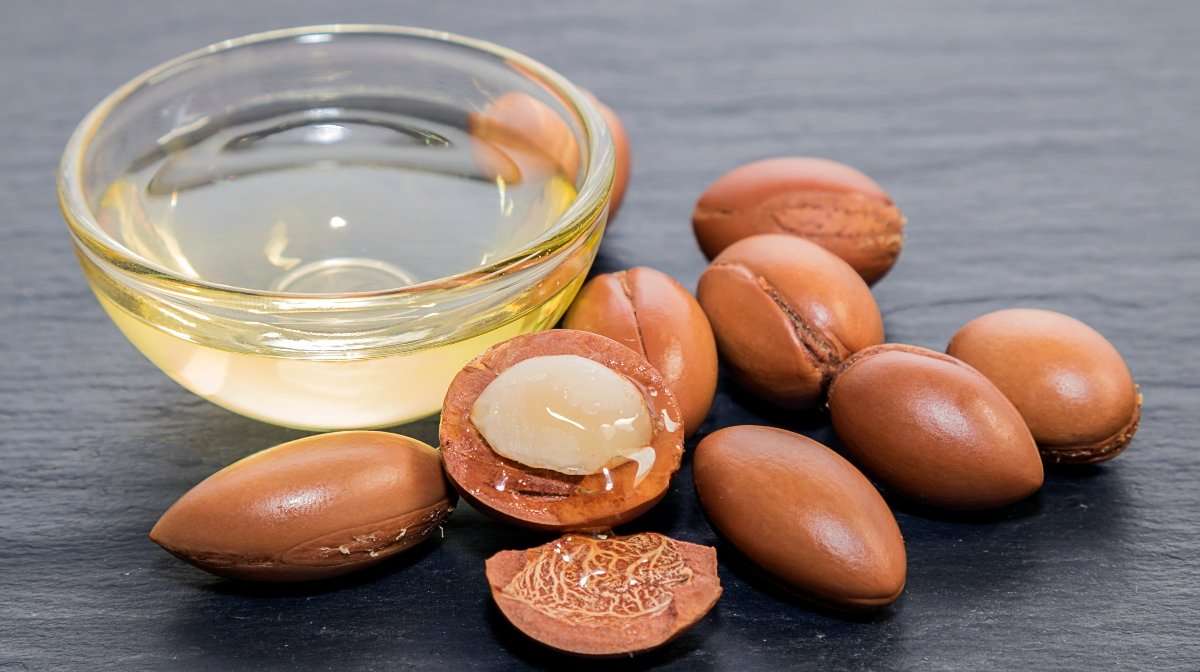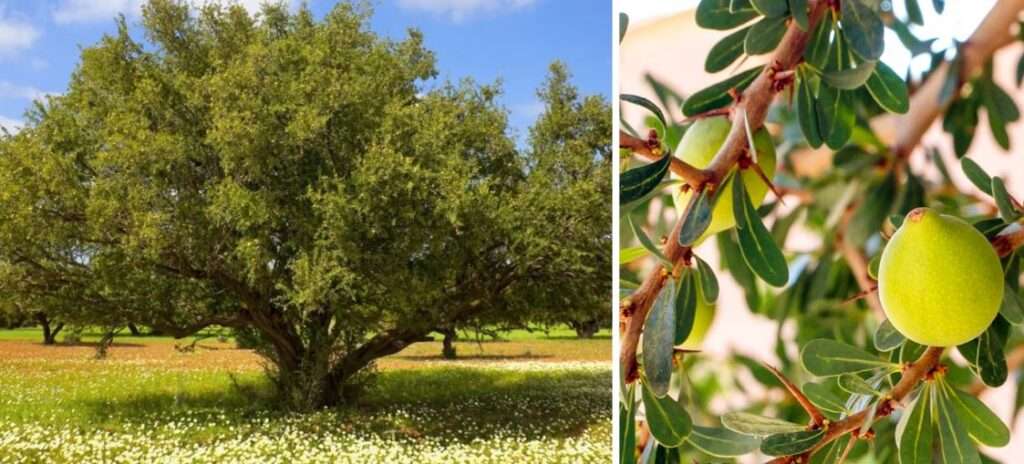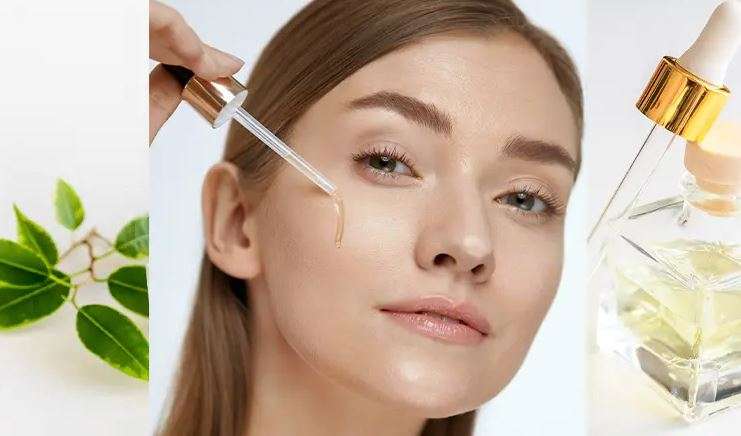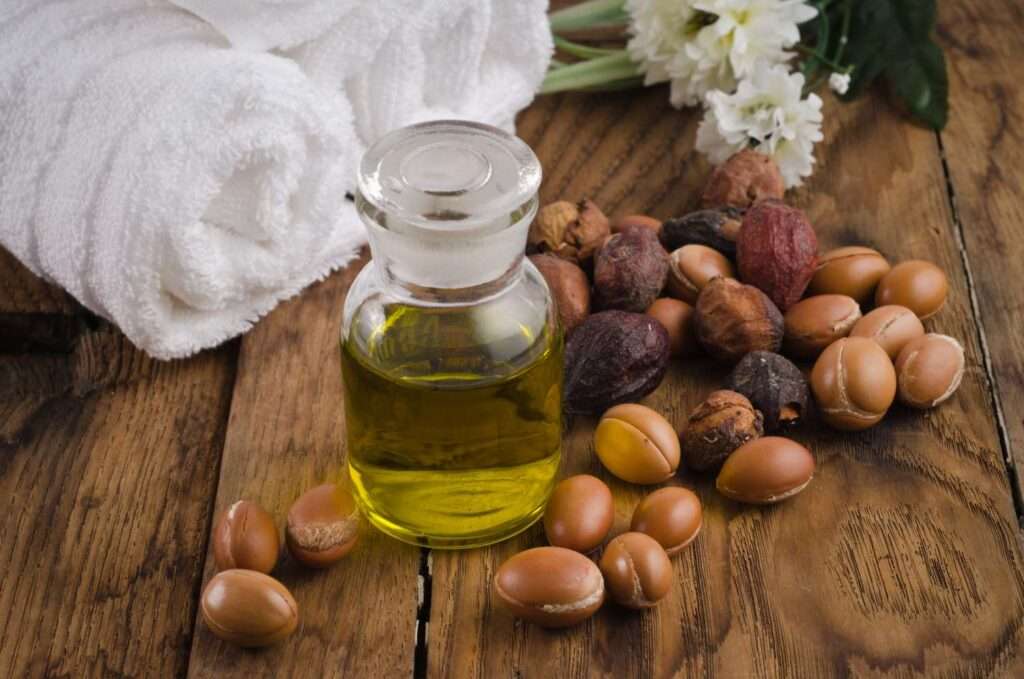
Argan oil, known as “liquid gold,” has quickly become one of Morocco’s prized exports. If you’ve ever wondered where it comes from, why it’s so popular, and how you can benefit from it, this Guide to Argan Oil will answer all your questions. I first encountered argan oil in Morocco, long before it became a global sensation. It surprised me when I saw it advertised internationally because, for many years, it was something you would only find locally.
So, let’s dive into everything you need to know about argan oil—from the tree it comes from to its wide range of uses.
Table of Contents
| Sr# | Headings |
|---|---|
| 1 | The Argan Tree: Morocco’s Native Treasure |
| 2 | How Argan Oil is Made: Traditional vs. Industrial Methods |
| 3 | Debunking the Goat Legend |
| 4 | Argan Oil for Hair: Does It Really Work? |
| 5 | Argan Oil for Skin: Nature’s Moisturizer |
| 6 | Culinary Argan Oil: Delicious and Heart-Healthy |
| 7 | How to Choose High-Quality Argan Oil |
| 8 | Where to Buy Authentic Argan Oil in Morocco |
| 9 | The Role of Argan Oil Cooperatives |
| 10 | The Growing Global Popularity of Argan Oil |
| 11 | Common Myths about Argan Oil |
| 12 | Argan Oil in Cosmetics: Beyond Hair and Skin |
| 13 | FAQs: Frequently Asked Questions About Argan Oil |
1. The Argan Tree: Morocco’s Native Treasure
The argan tree (Argania spinosa), often called the “thorny olive tree,” is indigenous to the southwestern region of Morocco. These trees thrive in arid, semi-desert conditions, which is why they’re perfectly suited to Morocco’s climate. Picture a rugged, dry landscape with scattered trees producing small, oval-shaped fruits that look a bit like green-yellow olives.
Inside each fruit lies a hard pit, which contains the seeds used to make argan oil. What makes argan oil so precious? It takes around 900 pounds of these seeds to make just one gallon of oil. The process, whether done traditionally or industrially, is incredibly labor-intensive, making the oil highly valuable.

2. How Argan Oil is Made: Traditional vs. Industrial Methods
There are two main methods of producing argan oil: traditional extraction and industrial extraction.
Traditional Method: In traditional Moroccan households and women’s cooperatives, argan oil is produced by hand. After collecting the fruit, the pulp is separated, and the hard pit is cracked open using stones. The seeds are roasted (if used for culinary oil) or left raw (if used for cosmetic oil) before being ground into a paste. Water is added, and the paste is kneaded until the oil is extracted—a process that can take hours.
Industrial Method: In modern factories, machines handle most of the labor-intensive steps. The pulp is removed mechanically, and special equipment cracks open the pits to extract the seeds. The seeds are then roasted, ground, and pressed to extract the oil. This method is faster and more efficient but still respects the traditional principles of oil production.
3. Debunking the Goat Legend
Have you ever heard the story about goats climbing argan trees and contributing to the oil-making process? It’s a famous urban legend, but there’s only a tiny bit of truth to it.
While it’s true that goats sometimes climb argan trees to eat the fruit, the idea that argan oil is made from seeds found in their droppings is a myth. Goats spit out the pits after chewing the fruit, which some locals might collect for personal use. However, this method is not used in the commercial production of argan oil.
So, while you might see goats in argan trees along the road from Marrakech to Essaouira, rest assured that your argan oil is produced in more sanitary conditions!
4. Argan Oil for Hair: Does It Really Work?
Argan oil is revered for its ability to transform dull, dry hair into shiny, smooth locks. Thanks to its rich content of essential fatty acids, vitamin E, and antioxidants, it nourishes hair from the roots to the ends.
You can use it as a leave-in conditioner, apply it to damp hair before styling, or simply rub a few drops into the ends of your hair to smooth out frizz. Over time, regular use of argan oil can help improve hair elasticity, reduce breakage, and protect against damage from heat styling tools.
5. Argan Oil for Skin: Nature’s Moisturizer
Argan oil isn’t just for your hair—it’s also a powerhouse for your skin. Thanks to its high levels of vitamin E, antioxidants, and omega-6 fatty acids, it deeply moisturizes and helps to regenerate the skin.
Whether you’re dealing with dry skin, fine lines, eczema, or even scars, argan oil can offer relief. It’s lightweight and absorbs quickly without leaving a greasy residue. Many people also use it to soothe sunburns, treat acne, and even reduce the appearance of stretch marks.

6. Culinary Argan Oil: Delicious and Heart-Healthy
While most people know argan oil for its beauty benefits, it’s also a delicious addition to Moroccan cuisine. Culinary argan oil has a nutty, slightly roasted flavor that pairs well with bread, salads, and even couscous.
In addition to its great taste, argan oil offers health benefits. It’s rich in unsaturated fatty acids, which help reduce bad cholesterol and lower the risk of heart disease. It’s also packed with antioxidants that support overall health.
7. How to Choose High-Quality Argan Oil
With so many options on the market, how can you ensure you’re buying the best quality argan oil? Here are a few tips:
- Check the ingredients: Pure argan oil should only have one ingredient—argan oil!
- Smell: Pure argan oil has a subtle, nutty aroma. If it smells too strong or rancid, it’s probably not fresh.
- Texture: It should feel smooth and non-greasy when applied to your skin.
- Packaging: Opt for dark glass bottles, as they protect the oil from light and preserve its quality.

8. Where to Buy Authentic Argan Oil in Morocco
You can find argan oil at almost any souvenir shop in Morocco, but these may not always be the best sources for authentic, high-quality oil. Your best bet is to purchase directly from the argan oil cooperatives in regions like Agadir or Essaouira.
When you buy from a cooperative, you not only get the highest quality product but also support the local women who produce it.
9. The Role of Argan Oil Cooperatives
Argan oil production is an important source of income for many women in rural Morocco. Women’s cooperatives are responsible for producing a significant portion of the world’s argan oil. These cooperatives provide women with fair wages and opportunities for economic independence.
By purchasing from these cooperatives, you’re supporting a sustainable industry that empowers Moroccan women.
10. The Growing Global Popularity of Argan Oil
Over the past two decades, argan oil has become a global phenomenon. It’s a common ingredient in many high-end cosmetic products, from moisturizers to shampoos. The oil’s versatility, combined with its natural origin, has made it a favorite in the beauty industry worldwide.
11. Common Myths about Argan Oil
There are many myths about argan oil, from its production process to its benefits. One common misconception is that only cosmetic-grade oil is high quality. In fact, both cosmetic and culinary oils offer significant benefits.
Another myth is that the oil must always be cold-pressed. While cold-pressed oil is beneficial, roasted oil has its own unique properties, especially for cooking.
12. Argan Oil in Cosmetics: Beyond Hair and Skin
Argan oil is not only used for hair and skin care; it’s also a key ingredient in many soaps, lotions, and nail treatments. Some use it as a carrier oil for essential oils, while others mix it into homemade face masks and exfoliating scrubs.
13. FAQs: Frequently Asked Questions About Argan Oil
1. Is argan oil suitable for all skin types?
Yes! Argan oil is non-comedogenic, meaning it won’t clog your pores. It’s gentle enough for all skin types, including sensitive and acne-prone skin.
2. Can I use argan oil as a makeup remover?
Absolutely. Argan oil is excellent for breaking down makeup, especially waterproof formulas, while nourishing your skin at the same time.
3. How long does argan oil last?
Pure argan oil can last up to two years if stored in a cool, dark place. Make sure to keep it in a dark glass bottle to preserve its freshness.
4. Is culinary argan oil safe to cook with?
Yes, but it’s typically used as a finishing oil rather than for high-heat cooking. Its delicate flavor is best enjoyed drizzled over dishes after they’re prepared.
Leave a Reply